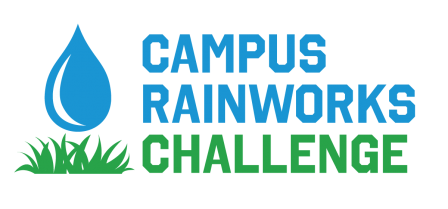The deadline to register for the U.S. Environmental Protection Agency’s (EPA) 2019 Campus RainWorks Challenge is Oct. 15. Following the registration deadline, participating teams have until Dec. 17 to submit their complete entries. The challenge is open to colleges and universities across the U.S. and its territories, and registration is free.

Registration for the U.S. Environmental Protection Agency’s 2019 Campus RainWorks competition is open until Oct. 15. Click here for more information.
Now in its eighth year, the challenge seeks innovative, environmentally sound solutions for campuses to manage stormwater pollution. Student teams, supported by a campus faculty advisor, can enter two green infrastructure design categories: master plan and demonstration project.
Master plan entries allow for a broadly focused roll out of long-range, wide-reaching plans across campus. Demonstration projects confine the focus to a green infrastructure solution at a specific site. Review information about the design categories and other criteria at the 2019 Campus RainWorks Challenge Competition Brief.
Winners of the 2019 challenge will be announced next spring. The team winning first place in each design category will receive $10,000 in prizes — $5,000 to split among student participants, $5,000 for the faculty advisor. Second place winners in each design category will receive $5,000 in prizes — $2,500 to split among student participants, $2,500 for the faculty advisor.
“EPA’s Campus RainWorks Challenge encourages students to transform classroom knowledge into innovative ideas to solve real-world environmental problems,” said Andrew Wheeler, EPA administrator, in a statement.
Last year’s first place winners were the University of Louisiana at Lafayette and the University of Oregon; second place winners in 2018 were Florida International University and the University of Arizona. Other past winners include the University of California, Berkeley; Kansas State University; the University of Texas at Arlington; the University of Maryland, College Park. Read more about the winning projects from the 2018 Campus RainWorks Challenge.
The Water Environment Federation (Alexandria, Va.), along with the American Society of Landscape Architects (Washington, D.C.), and American Society of Civil Engineers (Reston, Va.), cooperate with EPA to judge entries.
“This is WEF’s 7th year helping to judge the competition,” said Rebecca Arvin-Colon, WEF manager of technical programs. “It’s exciting to foster the talent and innovation of tomorrow’s green problem-solvers.”






